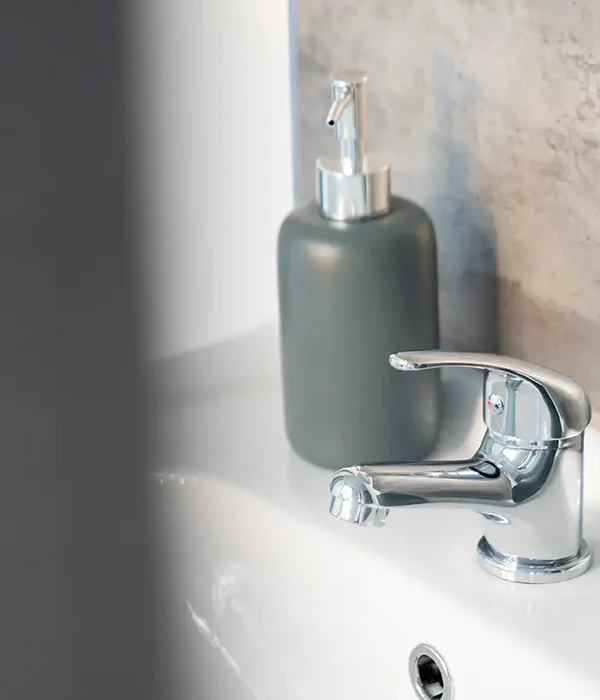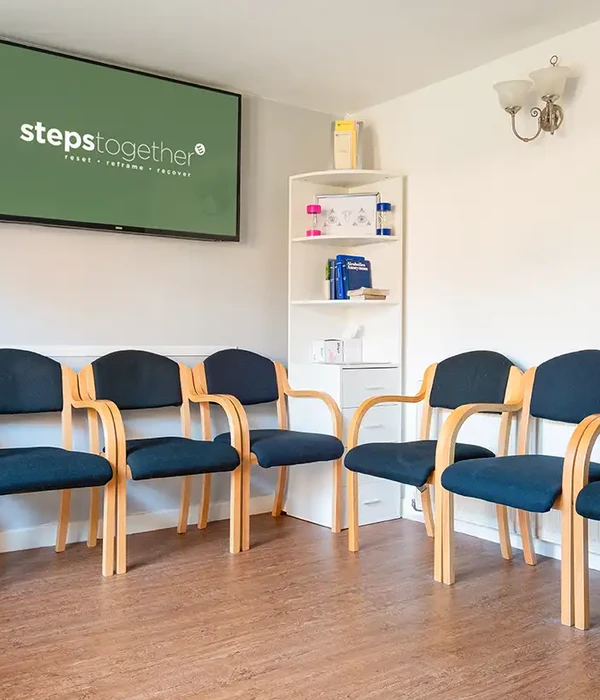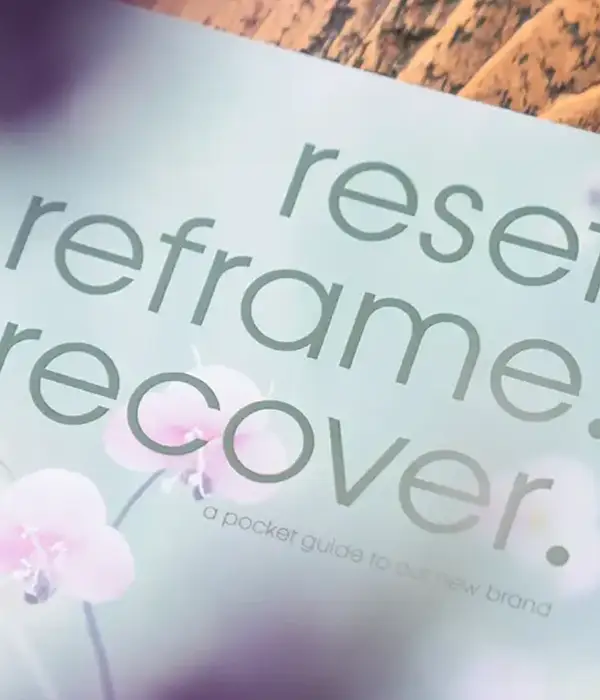Anxiety Treatment
Anxiety disorders in adults are common, but they do not have to control your life. With the right anxiety treatment plan, it’s possible to reduce your symptoms and feel better day by day. You don’t have to constantly worry over things that may not even happen.
Understanding what treatment options are available helps you make informed decisions about your mental health treatment. If you are living with anxiety, you are not alone; many people find relief by reaching out and learning about their choices. In some cases, anxiety may occur alongside substance use problems, creating what is known as a dual diagnosis, which requires treating both conditions together for lasting recovery.

Take the First Step Towards Recovery
Steps Together offers personalised support and proven treatments, providing the care, guidance and encouragement you need to move forward with confidence and build a healthier future.

Understanding Anxiety Disorders
Anxiety disorders involve more than just occasional stress or worry. These conditions can impact both your mind and body, changing how you think, feel, and behave each day. Anxiety symptoms can show up in many ways.
Physical symptoms may include a racing heart, sweating, trembling, or shortness of breath. You may feel dizzy or experience headaches and stomachaches. Emotional symptoms often involve persistent worries, nervousness, or a constant feeling of dread. Sleep disturbances such as insomnia are common.
Types of Anxiety Disorders
There are several different types of anxiety disorders, each with unique features. Generalised anxiety disorder (GAD) is the most common, and it involves constant and excessive worry about many aspects of daily life, even when there is little reason for concern. GAD can make it hard to focus, work, or make decisions.
Panic disorder leads to repeated and unexpected panic attacks. You may start to avoid places or situations that you fear could trigger an attack. Another common type is social anxiety disorder, which involves intense fear of being judged or embarrassed in social situations, making it hard to attend events or meet new people.


Causes and Risk Factors
Several factors can increase your risk for anxiety disorders. Genetics play a role; specifically, if you have family members with anxiety or other mental health concerns, you may have a higher risk. Continuous stress from school, work, or relationships also increases risk levels.
Chemical imbalances in the brain, especially involving stress hormones, can affect anxiety symptoms. Life events such as trauma or abuse may lead to post-traumatic stress disorder or other anxiety conditions. Certain health problems or medications can also make anxiety worse.
Management and Treatment of Anxiety
Effective treatment includes several practical changes that can help you manage anxiety. Building healthier routines, staying active, and making mindful decisions about food and sleep are all important steps.
Self-Help
Self-help means you use resources like books, websites, or apps on your own. These tools often contain practical tips, relaxation techniques, and exercises you can follow at home. These approaches let you work at your own pace and build confidence in managing your symptoms.
Guided self-help, in contrast, involves support from a professional such as a therapist or counsellor who helps you work through structured materials or programmes. For example, you might use a workbook based on cognitive behavioural therapy (CBT) with regular check-ins by phone or online. Both types aim to improve coping skills and reduce feelings of stress.
Improving Sleep and Routine
Getting enough rest is important if you want to limit feelings of anxiety. Sleep problems can make anxiety worse and make it harder to cope with normal events. Try to set a regular bedtime and wake-up time, even on weekends. Keep your bedroom calm and dark and avoid screens before sleep.
Simple steps like reading a book, taking a warm bath, or practising breathing exercises can help signal to your mind it’s time to relax. If you find it difficult to sleep, keep a notepad near your bed to jot down worries and avoid lying in bed awake. Good sleep habits create a strong foundation for better mental health and resilience.
Exercise and Physical Activity
Physical activity helps lower anxiety and improve your mood. Engaging in regular exercise, such as walking, cycling, or swimming, helps release endorphins, which are chemicals that support mental well-being. Even gentle movements like stretching or basic yoga can help reduce tension and make you feel calmer.
Aim for at least 30 minutes of moderate activity most days of the week. Participating in group sports or outdoor activities can also help you feel less isolated and more connected to others. If you’re not very active now, start slowly and gradually increase your activity. Staying active can make a significant difference in how you manage daily stress.
Healthy Diet and Mental Wellbeing
What you eat affects how you feel and think each day. A healthy diet that includes fruits, vegetables, whole grains, lean protein, and water can help support your mood and energy levels. Avoid too much caffeine, alcohol, or sugary snacks, as these can raise your anxiety or boost your feelings of stress.
Eat regular meals to maintain stable blood sugar levels. Include foods rich in vitamins, such as leafy greens and nuts, to provide your brain with the essential nutrients it needs. Positive changes in your eating habits can help you manage anxiety alongside other self-care strategies.
Services that our multi-speciality addiction rehabilitation centres offer

Behavioural Therapy to Reduce Anxiety
Effective treatment for anxiety includes a variety of approaches. CBT is a leading talk therapy that can be used to treat various mental health conditions, including anxiety. It uses practical techniques to help you manage negative thoughts, face fears, and build healthier behaviours.
CBT focuses on how your thoughts, feelings, and actions interact with one another. In therapy, you will work with a trained professional to spot unhelpful thinking. For example, if you often assume the worst, your therapist will teach you how to challenge those beliefs.
Exposure Therapy
Exposure therapy is a key part of CBT for anxiety. This method helps you face your fears in a gradual and controlled way. You start with situations that are only slightly stressful and work your way up to more challenging ones.
You and your therapist will make a list of feared situations, ranking them from least to most scary. Over time, facing your fears helps break the cycle of avoidance. You learn that the things you fear are often less dangerous or harder to handle than you thought.

Alternative Therapies and Support
Meditation and mindfulness can help you feel less anxious by guiding you to focus on the present. These practices teach you to slow down racing thoughts and reduce your anxiety. Most people can try meditation at home using guided recordings or apps, or explore them further as part of a wider holistic treatment plan.
Relaxation techniques can help reduce anxiety by calming the mind and body. Practices such as deep breathing, progressive muscle relaxation, and guided imagery can lower stress levels and promote a sense of calm and control. These techniques can improve emotional balance, focus, and overall well-being in daily life.
Substance misuse can complicate anxiety treatment and often increases symptoms. Common substances include alcohol, recreational drugs, and some prescription medicines. These can interfere with your treatment, reduce the effect of treatment, and may worsen anxiety symptoms and your mental health in general.
Pharmacological Treatment Options
Medication plays a key role in anxiety treatment. Types of medication include antidepressants, anti-anxiety medicine, and other drugs, each with its benefits and risks. Some of the medications used to treat mental health conditions include:
Antidepressants
Antidepressants are often prescribed as first-line treatments for anxiety. The most common ones are selective serotonin reuptake inhibitors (SSRIs). These medications, such as sertraline and fluoxetine, work by increasing serotonin levels in the brain, which can help regulate mood.
SSRIs typically take several weeks to reach their full effect. You may experience side effects such as nausea, headache, or trouble sleeping initially. Most side effects fade after a short while. Sometimes, your doctor may suggest serotonin-norepinephrine reuptake inhibitors (SNRIs), like venlafaxine, which also affect another brain chemical called norepinephrine.
Other Medications for Anxiety
Some people may not respond well to SSRIs, SNRIs, or typical anti-anxiety medication. In these cases, your doctor might try other medicines such as buspirone, pregabalin, or certain antiepileptic drugs. Buspirone works differently from benzodiazepines and is less likely to be addictive.
Pregabalin is mainly used to treat nerve pain, but can also help with generalised anxiety disorder. This drug may cause dizziness or sleepiness. Antiepileptic medicines, such as gabapentin, are sometimes tried for anxiety but are not approved for this use in all countries.
Benzodiazepines and Beta-Blockers
Benzodiazepines, such as diazepam or lorazepam , offer quick relief from anxiety symptoms. They work by calming the central nervous system and are usually effective within hours. Because they can cause drowsiness and carry a risk of dependence, these medications are usually prescribed for only short-term use.
Beta-blockers, such as propranolol, are often used to treat the physical effects of anxiety, like rapid heartbeat or shaking. They are not addictive and have fewer mental side effects than benzodiazepines. However, they do not treat the underlying causes of anxiety.

You Can Manage Your Mental Health
Anxiety can be managed through a combination of approaches, including individual therapy, support groups, guidance from primary care providers, and healthy changes to your daily routine. Self-help strategies like mindfulness, exercise, and stress management also play a key role in long-term recovery.
Recognising when to seek help is essential, especially when your anxiety begins to disrupt your daily life or you start using alcohol or drugs to cope. At Steps Together, our effective anxiety treatment is designed to help you reduce your constant worry, regain confidence, and take back control of your life.
Frequently Asked Questions
What are the most effective therapies for managing symptoms of anxiety?
Cognitive behavioural therapy (CBT) is one of the most widely used treatments for anxiety and has shown lasting results for many people.
What is the role of medication in the treatment of anxiety?
Your doctor might suggest medication if your symptoms are severe or do not get better with therapy alone. Options include antidepressants or other medicines that target anxiety. Each person responds differently, so it may take time to find the best choice for you.
What are the signs that one should seek professional help for anxiety?
You should seek help if anxiety starts to affect your daily life, like making it hard to work or enjoy normal activities. Strong, ongoing worry or fear that persists could be a sign. If you find it difficult to manage anxiety on your own, speaking to a GP or mental health professional is recommended.
Can lifestyle changes contribute to the treatment of anxiety disorders?
Healthy lifestyle choices can reduce anxiety symptoms. Regular exercise, getting enough sleep, and eating balanced meals may help you feel better. Making time to relax and spending time with supportive people is also helpful for managing anxiety.
How does cognitive behavioural therapy assist in alleviating anxiety?
CBT teaches you how to challenge negative thoughts and change patterns that make anxiety worse. You learn practical ways to deal with anxious feelings and situations.
Are there any self-help strategies that can be beneficial for those experiencing anxiety?
Self-help strategies include deep breathing, staying active, keeping a routine, and practising mindfulness. Writing in a journal or talking to trusted friends can also help you cope. Using these approaches can support you alongside professional treatment or on their own for milder symptoms.





